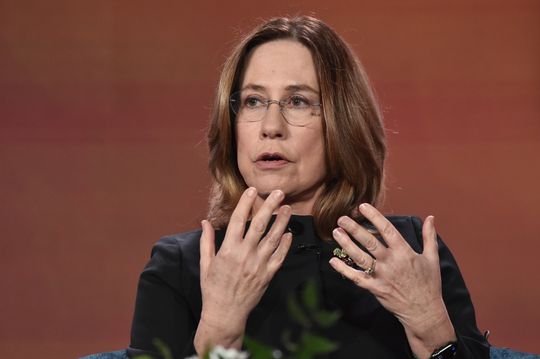‘If we have a financial crisis, we won’t have a soft landing,’ Bair told MarketWatch. ‘We have to avoid that at all costs.’
Regional banks shouldn’t be the only source of worry for potential fallout from the Federal Reserve’s rapid pace of interest-rate hikes in the past year, said a former top banking regulator.
“I don’t see regional banks as having any particular problem,” said Sheila Bair, who ran the Federal Deposit Insurance Corp. from 2006 to 2011, in an interview with MarketWatch on Thursday. “We need to be mindful of all unmarked securities at banks — small, medium and large.”
Bair called the hyperfocus on regional banks and interest-rate risks “counter productive” in the wake of the collapse earlier in March of Silicon Valley Bank and Signature Bank SBNY, -22.87% of New York.
“This is a risk confronting all banks,” she said. “All examiners need to be on alert for how interest-rate risk is being managed. If there is a run, they will need to sell these securities. Those are the kinds of things all-size banks, and all examiners should be worried about.”
A run on deposits at Silicon Valley Bank snowballed after it disclosed a $1.8 billion loss on a sudden sale of $21 billion worth of high-quality, rate-sensitive mortgage and Treasury securities. It was the biggest U.S. bank failure since Washington Mutual’s collapse in 2008.
The FDIC estimated that U.S. banks had some $620 billion of unrealized losses from securities on their books as of the end of 2022, including longer-duration Treasurys and mortgage securities that have become worth less than their face value.
“Unrealized losses on securities have meaningfully reduced the reported equity capital of the banking industry,” FDIC Chairman Martin Gruenberg said on March 6, in a speech at the Institute of International Bankers.
Days after that gathering, Silicon Valley Bank and Signature Bank both collapsed, prompting regulators to roll out a new emergency bank funding program to help head off any liquidity strains at other U.S. lenders. Regulators also backstopped all deposits at the two failed lenders.
Bair earlier this month argued that if U.S. banking authorities see systemic risks they should go to Congress and ask for a backstop against uninsured deposits, beyond the standard $250,000 cap per depositor, at a single bank. Specifically, she wants zero-interest accounts, or those used for payroll and other operational expenses, to be fully covered, as was the case for a few years in the wake of the global financial crisis to stop runs on community banks.
Treasury Secretary Janet Yellen said Wednesday that blanket deposit insurance protection isn’t something her department is considering, but added that the appropriate level of protection could be debated in the future.
Fed Chairman Jerome Powell on Wednesday said the U.S. banking system “is sound and resilient, with strong capital and liquidity,” after hiking rates by another 25 basis points to a range of 4.75% to 5%, up from almost zero a year ago.
Bair has been calling for a pause on Fed rate hikes since December. She said that instead of raising rates by another 25 basis points on Wednesday, Fed Chair Powell should have hit pause and said the central bank needs time to assess.
“If we have a financial crisis, we won’t have a soft landing,” Bair said. “We have to avoid that at all costs.”
Stocks closed modestly higher Thursday in choppy trade, with the Dow Jones Industrial Average DJIA, +0.23% up 0.2% and S&P 500 index SPX, +0.30% advancing 0.3%, while the Nasdaq Composite Index COMP, +1.01% gained 1%.

